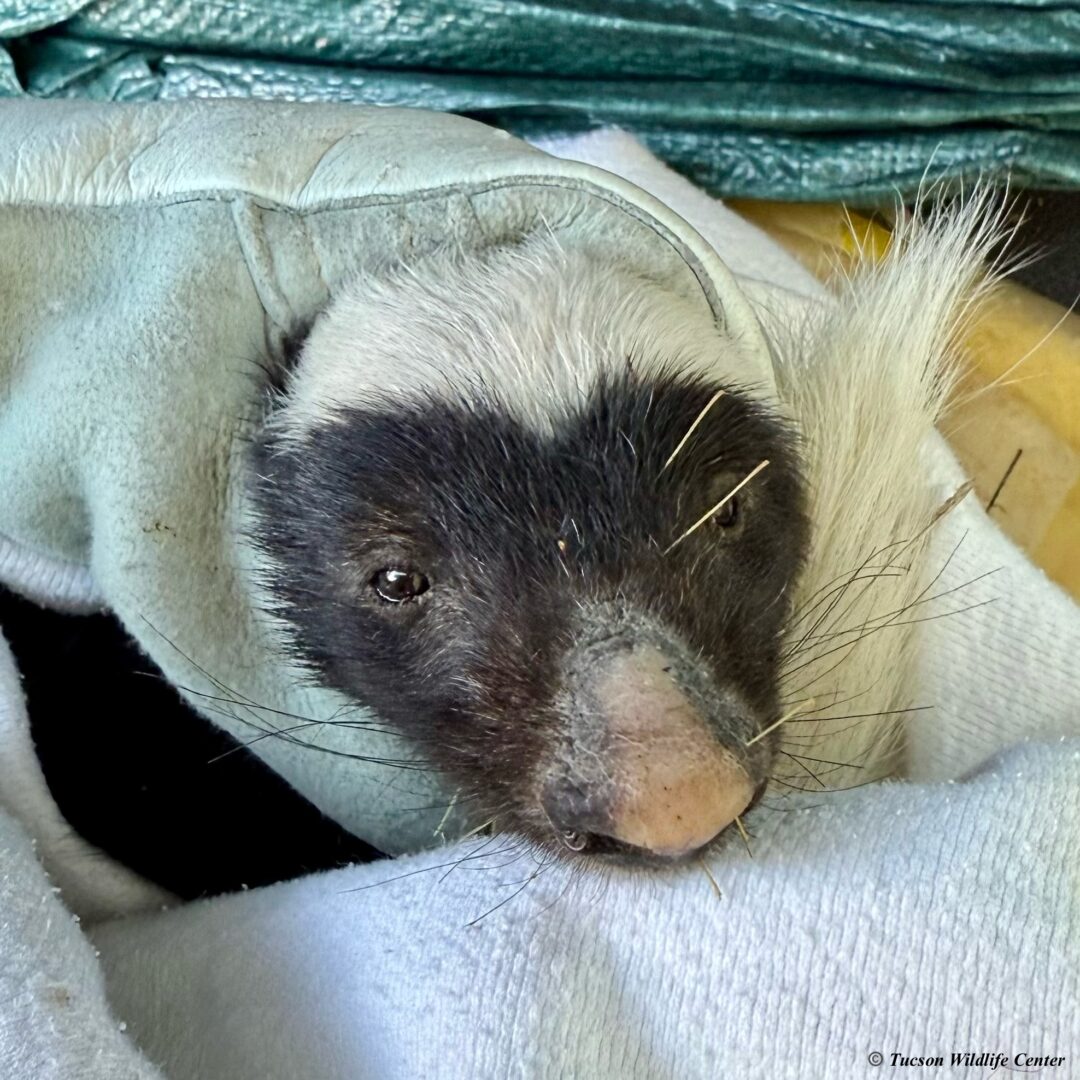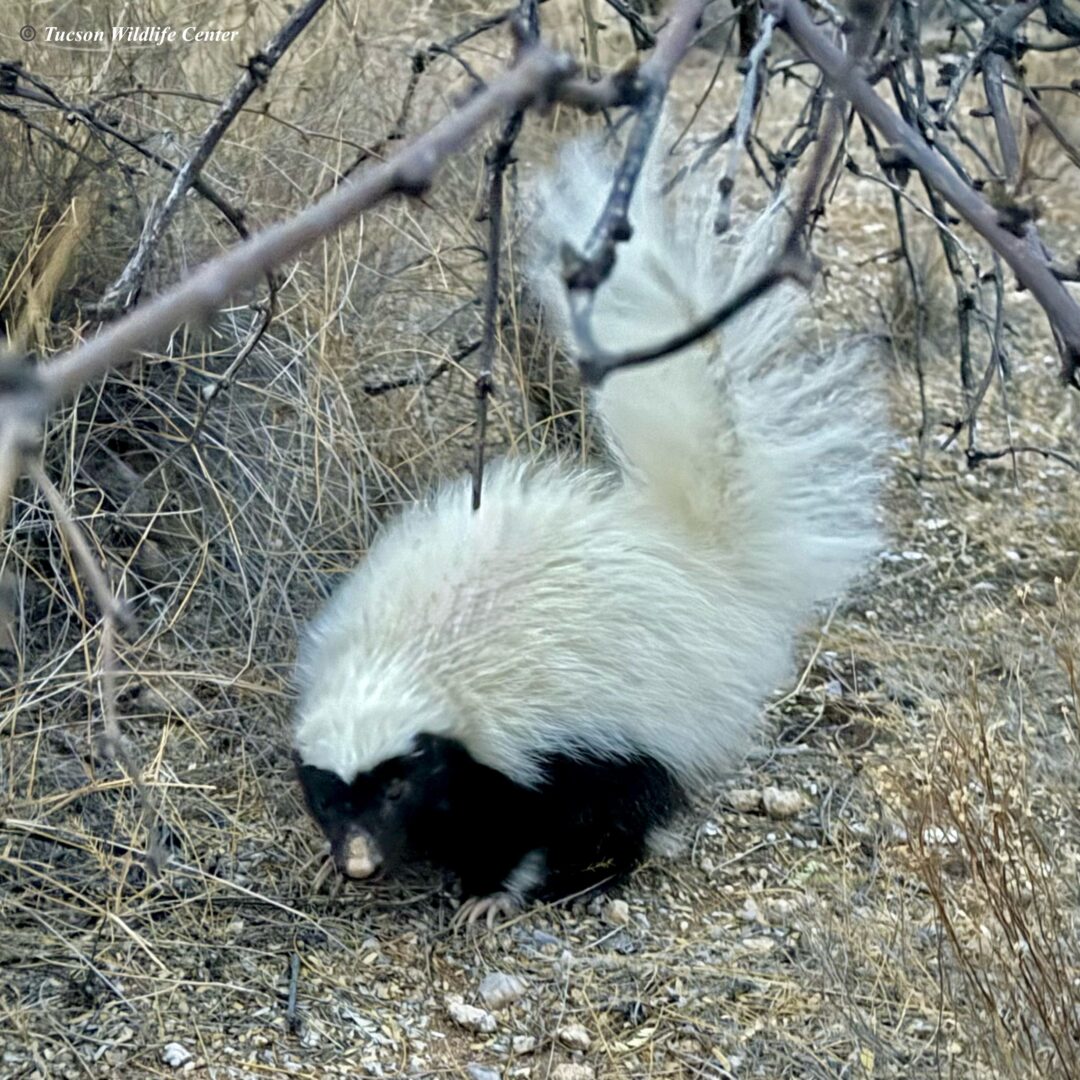
Juvenile Hog-nosed Skunk
This Valentine’s Day, the wildlife care team at Tucson Wildlife Center is in love with this tough juvenile Hog-nosed Skunk. This determined forager arrived at TWC with head trauma and a face full of cactus spines—possibly resulting from an unfortunate run-in while searching for food.
Our team’s first step was carefully removing the cactus spines to prevent further injury. Embedded spines can cause pain, infection, and even migrate deeper into the tissue if left untreated. Using fine-tipped forceps, each spine was extracted, ensuring none were left behind. With supportive care, and careful monitoring for signs of infection, this resilient skunk made a full recovery and was recently released back into the wild.
Fun facts: The American Hog-nosed Skunk is the largest skunk species in North America, sometimes reaching over 4-feet in length, including the tail. Unlike striped skunks, which can have either one or two white stripes along their backs, hog-nosed skunks have a single, broad white stripe from the top of their head down to their tail. Their “hog-like” nose is adapted for digging, and they use it to root around for insects, grubs, and even small vertebrates. If you would like to help patients like this Hog-nosed Skunk, click this link to donate,
Another way you can contribute is to visit our “wish list” on Amazon by clicking on the Amazon Wish List button below. We appreciate it, as will all the wild animals in our care!


Show your support with a minimum $25 donation and we’ll send you a “KEEP TUCSON WILD” sticker. Click the bumper sticker to donate.

